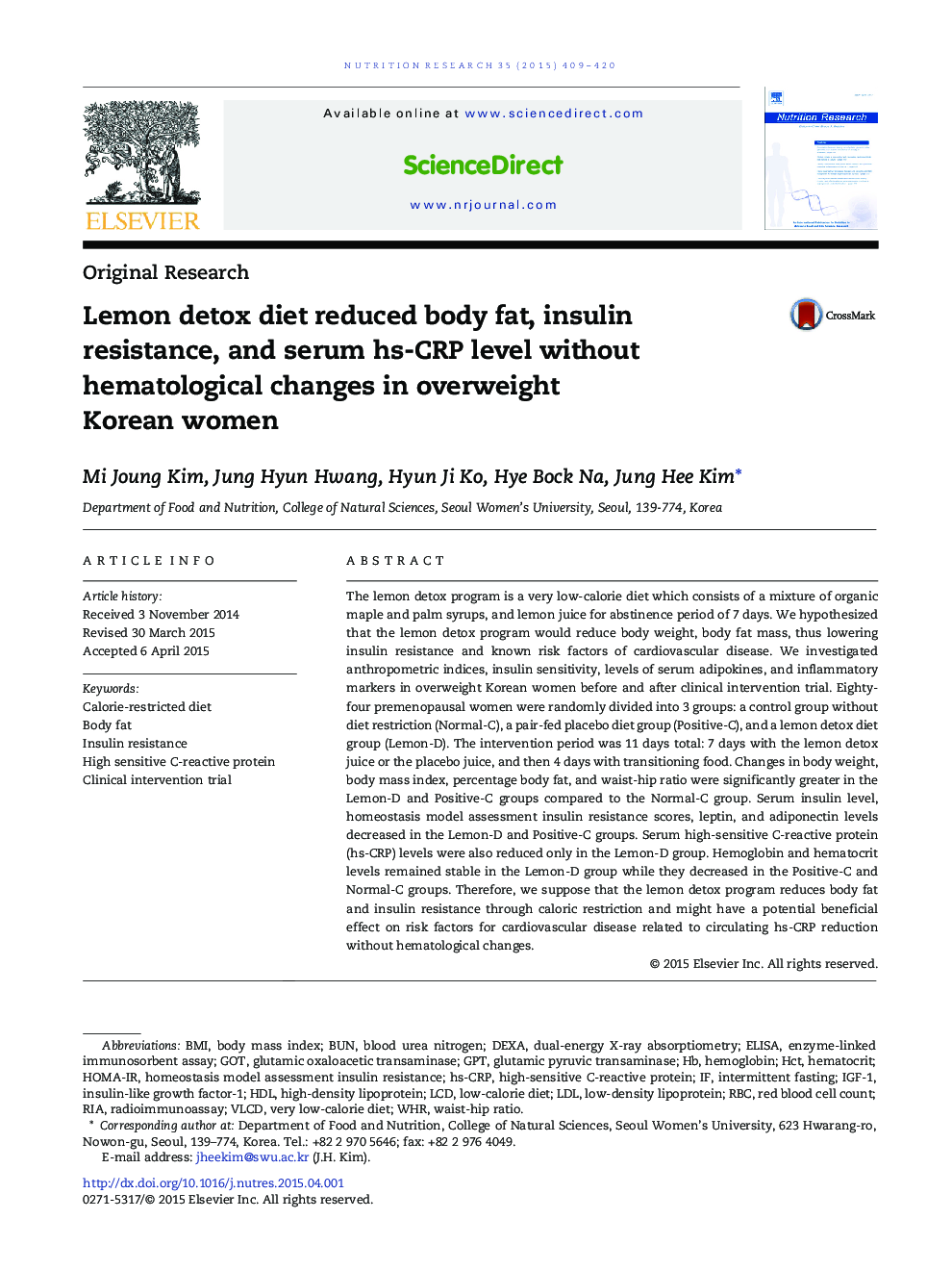| Article ID | Journal | Published Year | Pages | File Type |
|---|---|---|---|---|
| 5904399 | Nutrition Research | 2015 | 12 Pages |
The lemon detox program is a very low-calorie diet which consists of a mixture of organic maple and palm syrups, and lemon juice for abstinence period of 7 days. We hypothesized that the lemon detox program would reduce body weight, body fat mass, thus lowering insulin resistance and known risk factors of cardiovascular disease. We investigated anthropometric indices, insulin sensitivity, levels of serum adipokines, and inflammatory markers in overweight Korean women before and after clinical intervention trial. Eighty-four premenopausal women were randomly divided into 3 groups: a control group without diet restriction (Normal-C), a pair-fed placebo diet group (Positive-C), and a lemon detox diet group (Lemon-D). The intervention period was 11 days total: 7 days with the lemon detox juice or the placebo juice, and then 4 days with transitioning food. Changes in body weight, body mass index, percentage body fat, and waist-hip ratio were significantly greater in the Lemon-D and Positive-C groups compared to the Normal-C group. Serum insulin level, homeostasis model assessment insulin resistance scores, leptin, and adiponectin levels decreased in the Lemon-D and Positive-C groups. Serum high-sensitive C-reactive protein (hs-CRP) levels were also reduced only in the Lemon-D group. Hemoglobin and hematocrit levels remained stable in the Lemon-D group while they decreased in the Positive-C and Normal-C groups. Therefore, we suppose that the lemon detox program reduces body fat and insulin resistance through caloric restriction and might have a potential beneficial effect on risk factors for cardiovascular disease related to circulating hs-CRP reduction without hematological changes.
